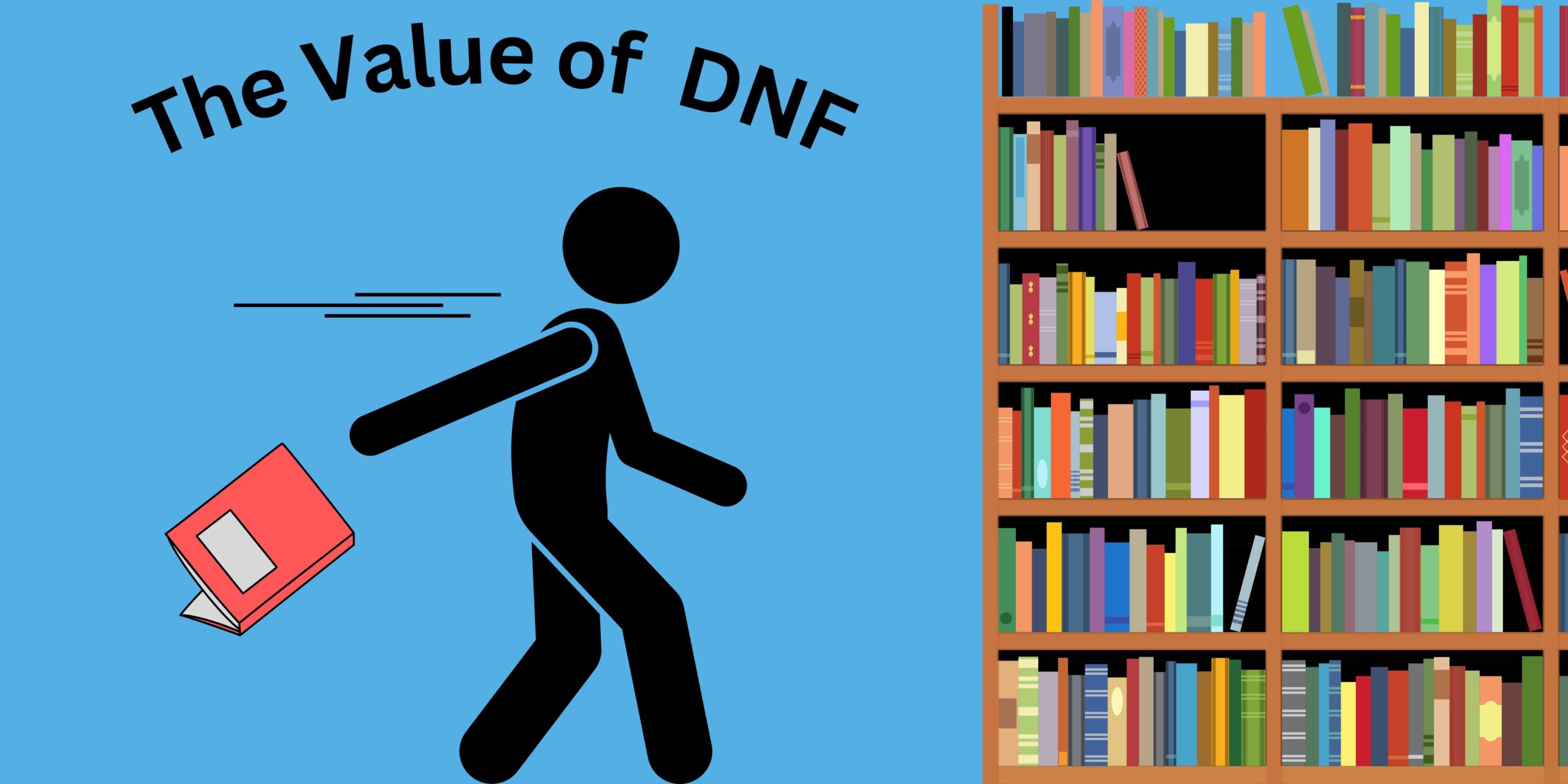I am happily learning the value of DNF.
COVER-TO-COVER OR NOT
I don’t know about you, but I was born a cover-to-cover reader. I read the forwards, the prologues, the dedications, and the author’s notes. All of it, front to back. (With, maybe the exception of the bibliography. Maybe.)
I have also always had trouble putting down a book I started to read without finishing it. (Honestly, that novel I started and never finished in 1970 still haunts me!) But life is short and filled with distractions, and no matter what a blurb or review says about a book, no matter who it is touting how amazing and what a “must read” a book is, sometimes a book just isn’t for us.
And that’s okay.
READING LIKE A WRITER/EDITOR
Reading like a writer/editor (or book coach) isn’t just about learning what makes a book good, but also about choosing which good books to spend our precious time on.
I tell my book clients and writing students that almost any book can be used as a mentor text. Great books that we love are examples that show us how to write well. Not-so-great books that don’t resonate for us, that take us on a slippery journey, or make for a reading slog, show us how not to write. If you admire the way a writer does something, you study that effect, pull it apart, and see how it’s done. Just as an artist studies the brush strokes of a master painter, the way they use color and light, writers should study great writing techniques. Not to copy, but to learn.
Unfortunately, while this study makes us more astute readers and better writers, it also means we find sloppy or weak writing jarring to our senses. And we become more attuned and sensitive to pacing, rhythm, word choice, cadence, and voice.
VOICE, RHYTHM, CADENCE AND STYLE
Sometimes, a book is hard to read is because the writing style and/or voice is not a good match for our reading brains. For me, this dissonance causes a disconnect and creates narrative distance between me and the story. It’s not that the author is doing anything wrong. Not at all. Their prose is simply a mismatch for my reading brain.
By the same token, there are audiobook narrators whose voices are off-putting for me as a listener. There is nothing wrong with their voices or the way they read. We’re just not in attunement. Some people like jazz, some hard rock, others classical. It’s the same with narrative prose.
There are myriad styles and genres to suit the tastes of a diverse array of readers. We will not please everyone with our books and stories, just as not all stories and books please us.
Thus, the value of DNF.
NOT EVERY BOOK IS FOR ME
As a voracious and eclectic reader, I am all over the map with genre and styles, from hard science and non-fiction to memoir and narrative non-fiction to speculative fiction, fantasy and science fiction, paranormal and mystery. And I read across categories, as well. Picture books, chapter books, middle grade, young adult, and adult all appeal to me.
But not every book is right for me, my brain, the way I receive information, the kind of prose that sings for me. And there just isn’t enough time to read everything. So, I have had to adjust my reading process. I have had to learn to be selective and that it’s okay to dip in, check the prose, meet the characters, and determine if a story is right for me.
And am learning to be okay when it’s not.
LEARNING TO TRUST THE VALUE OF DNF
It’s not easy. I have long been a committed reader, one who picks up a book, and reads it cover to cover. But these days, as I find my time becomes more and more precious, and as the already never-ending stack of books clamoring for my attention grows astronomically, I am learning to appreciate and embrace the value of DNF.
That doesn’t mean I am yet at what I would consider speed dating books. I still like to give a book at least three chapters, or up to fifty pages. But when I find myself reaching for the book on the top of my reading pile with my heart falling rather than leaping in joy, I know it’s time to call it.
To be fair, sometimes I will read the final pages of a potential DNF, just to be sure I’m not calling it too soon. So far, I haven’t been encouraged to go back and read the middles, which helps me to trust my decision to note the time of DNF and move on.
* * * To get content like this sent direct to your inbox, sign up for my monthly newsletter.
To get content like this sent direct to your inbox, sign up for my monthly newsletter.
Or follow me on Substack.
For more information on Book Coaching, check out my FAQ page.
If you’re interested in what I write, check out my Author site.
And if you write or want to write children’s books, give the Coaching KidLit podcast a listen.

